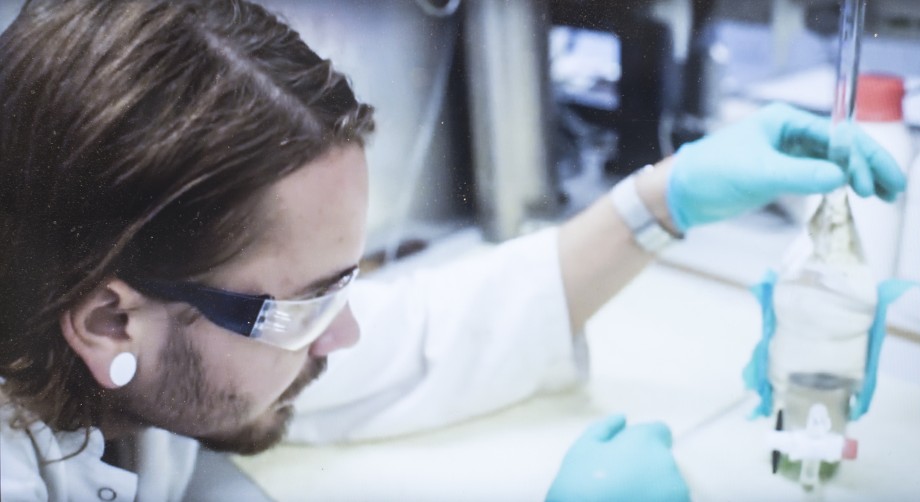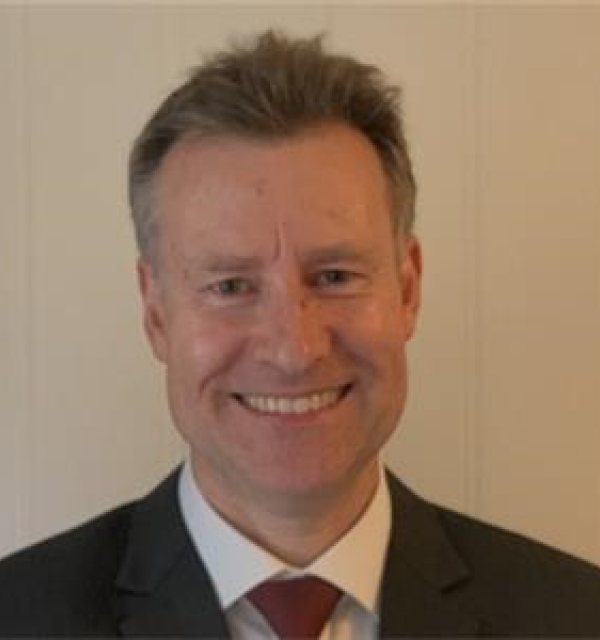Norway is recognised worldwide as a leader in the advances of offshore industry, and the University of Stavanger has close ties with the local and international industry.
2 years (4 semesters)
English
August every year

About the study programme
This master’s programme will provide you with advanced knowledge of petroleum wells in a life cycle perspective; from design and drilling via operation, control and production, to plugging and abandonment.
- This knowledge is based on classical topics like physics, mechanics, chemistry and fluid flow; but also specialised topics like reservoir technology, rock mechanics and material technology. These are all required within the primary application which is petroleum exploration and production.
- The study programme also concerns applications down-stream, like energy technology, as well as mathematical modelling and computer programming.
- The study programme in petroleum engineering is offered to international and Norwegian students, and all teaching activities are conducted in English. This is an advantage for you as a student, since you are educated to work in an international industry, where English is the working language.
Career prospects
The master's programme in Petroleum Engineering educates highly qualified engineers for a wide range of jobs in the oil and gas industry. This is an international industry, and master students in petroleum engineering will have many opportunities on the international jobs market after completing their degrees
The general goal of the programme is to provide the candidate with a broad knowledge base to help manage the world`s petroleum resources in the most profitable and sustainable way.
A Master’s degree in Petroleum Engineering gives a solid foundation for admission to PhD studies in the areas relevant to the chosen academic specialisation. In particular, the PhD studies in energy engineering and geoscience are relevant.
Learning outcomes
All study programmes at the UiS have a set of defined learning targets. Read more about the learning outcome for this study programme.
After having completed the master’s degree programme in Petroleum Engineering, the student shall have acquired the following learning outcomes, in terms of knowledge, skills and general competences:
Knowledge
K1: The candidate has advanced knowledge within the field of petroleum engineering and specialised insight into a particular area in this field.
K2: The candidate has in-depth knowledge of scientific theories and methods connected to the subject area. The candidate can apply this knowledge to new areas within the subject area and analyse technical issues based on the history, tradition, distinct nature, and societal importance of the subject area.
K3: The candidate can apply this knowledge to develop, manage and implement petroleum engineering solutions within the oil and gas sector.
Skills
S1: The candidate can analyse existing theories, methods and interpretations within petroleum engineering, and work on practical and theoretical issues independently.
S2: The candidate can independently carry out a specialised research or development project within petroleum engineering under supervision and in line with current ethical norms of research.
S3: The candidate can solve petroleum engineering problems by integrating different types of data used in the oil industry.
S4: The candidate can use state-of-the art technology and manage, develop and carry out processes within petroleum engineering.
General Competence
G1: The candidate can analyse relevant, professional, research and ethical issues.
G2: The candidate can apply her/his own knowledge and skills to new areas to carry out advanced assignments and projects.
G3: The candidate can communicate information relating to independent work to other petroleum engineers. The candidate has an excellent command of the terminology related to the subject area.
G4: The candidate can communicate, not just with other petroleum engineers, but also with the general public on professional issues within the subject area, thus contributing to the innovation process with new ideas.
Study plan and courses
Enrolment year: 2025
-
Compulsory courses
-
Reservoir Physics and Chemistry
Year 1, semester 1
-
Directional Drilling and Well Flow Engineering
Year 1, semester 1
Directional Drilling and Well Flow Engineering (PET505)
Study points: 10
-
Computational Reservoir and Well Modeling
Year 1, semester 1
-
Modeling and Control for Automation and Digitalization
Year 1, semester 2
Modeling and Control for Automation and Digitalization (PET575)
Study points: 10
-
Advanced Well and Drilling Engineering
Year 1, semester 2
-
Master's Thesis in Petroleum Engineering
Year 2, semester 3
-
-
Choose one course
-
Decision Analysis in Excel
Year 1, semester 2
-
Project Cost Estimation and Risk Analysis
Year 1, semester 2
-
Risk Assessment, Economic Evaluation and Decisions
Year 1, semester 2
Risk Assessment, Economic Evaluation and Decisions (RIS525)
Study points: 10
-
-
3rd semester at UiS or Exchange Studies
-
Courses at UiS 3rd semester
-
Recommended electives 3rd semester
-
Energy, Energy Technologies, and Energy System Integration
Year 2, semester 3
Energy, Energy Technologies, and Energy System Integration (PET515)
Study points: 10
-
Advanced Energy Technologies
Year 2, semester 3
-
Well Integrity and Permanent P and A
Year 2, semester 3
-
Well Completion and Intervention
Year 2, semester 3
-
-
Other elective 3rd semester
-
Practical Training in Petroleum Engineering
Year 2, semester 3
-
-
-
Exchange 3rd semester
-
Exchange Studies 3rd semester
-
-
Academic requirements
A bachelor's degree within the following disciplines is required:
- Energy- and Petroleum Engineering
- Geosciences with at least 20 ECTS credits in energy- and petroleum engineering courses
Applicants with a bachelor’s degree in other engineering disciplines may also be considered if they document at least 20 ECTS credits in energy- and petroleum engineering courses
Applicants must have the equivalent of 25 ECTS credits in mathematics, 5 ECTS credits in statistics and 7,5 ECTS credits in Physics.
Admission to this master's programme requires a minimum grade average comparable to a Norwegian C (according to ECTS Standards) in your bachelor's degree. Applicants with a result Second-class lower Division or lower are not qualified for admission.
Application and admission
Contact
For inquiries regarding admission to international Master's programmes, send an email to: admissions@uis.no
Student life at UiS
Student organisation:
Student exchange
By going on exchange to one of our partner institutions abroad as part of your studies, you will have an opportunity to get a unique education. In addition to improving your career opportunities, you grow as a person and gain the ability to greater reflect on the topics you study as part of your degree.
Study abroad
Schedule for the exchange
The 3rd semester of the master's programme in petroleum engineering is prepared for students exchanges by offering 30 ECTS of electives. The courses taken abroad must however be relevant to the master's programme, and must be approved by the department. It is also important that the courses from abroad do not overlap with courses already taken.
More opportunities
In addition to the recommended universities listed below, The University of Stavanger has several agreements with universities outside Europe that are applicable to all students at The University of Stavanger, provided that they find a relevant course offering. Within the Nordic region and the Baltics, all students can use the Nordlys and Nordtek networks.
Contact person
Supervision and pre-approval of courses:
General questions about exchange:
Go to the exchange guide in the Digital Service Desk
See where you can travel
Frequently asked questions
Here are some of the most common questions we get about studying energy related courses at the University of Stavanger.
Is it possible to take the study as a distance student?
Some of the courses included in the study programme may be taken digitally as a distance student. However, several of the courses on the programme have compulsory laboratory activities, which requires that one is present. You can always consult with the study adviser or lecturers if you are wondering if a specific course can be completed digitally.
Can I take this study part time?
We do not have a separate part-time plan for this study. But you get the right to study for 3 years by admission to the master's programme, with the possibility of a fourth year to complete. This means that you can set up an individual education plan that is not a full-time study. It is a good idea to contact the study adviser so that you can make a plan together.
How do I find my way around campus?
Our electronic map (MazeMap) takes you straight to the room or auditorium you are looking for. The map also contains other important information about buildings and outdoor spaces.
Contact
Faculty Administration TN
Kontor for utdanningsadministrative tjenester
Department of Energy and Petroleum Engineering


